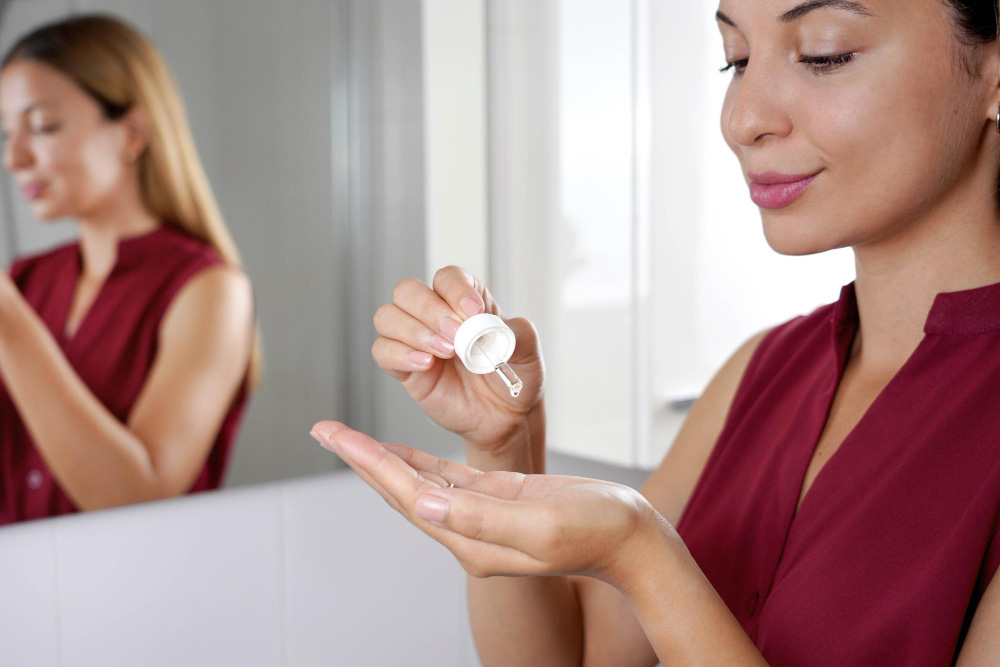Incorporating Retinol into Your Skincare Routine: The Anti-Aging Benefits of Vitamin A May 5, 2025

As the beauty industry evolves, one ingredient has consistently held its reputation as a gold standard in anti-aging skincare: Retinol, a derivative of Vitamin A. Known for its ability to accelerate cell turnover, reduce wrinkles, and improve skin texture, retinol has become a staple in the routines of dermatologists and skincare enthusiasts alike.
Whether you’re living under the sun in Dubai, facing seasonal changes in Lebanon, or managing a skincare routine amidst the heat and humidity of the United Arab Emirates (UAE), adding retinol to your regimen can dramatically enhance your skin’s appearance—if used correctly.
What is Retinol?
Retinol is a type of retinoid, which itself is a derivative of Vitamin A. It works by encouraging skin cells to turn over faster, stimulating collagen production, and unclogging pores. This makes it effective in targeting a wide range of skin concerns, including:
- Fine lines and wrinkles
- Uneven skin tone and texture
- Sun damage and hyperpigmentation
- Acne and breakouts
- Loss of firmness
Because it influences both the surface of the skin and deeper layers, retinol is a comprehensive solution for long-term skin renewal.
The Anti-Aging Benefits of Retinol
1. Stimulates Collagen Production
Collagen is the protein responsible for skin’s firmness and elasticity. As we age, collagen levels decrease, leading to sagging and wrinkles. Retinol helps counteract this process by promoting new collagen synthesis, resulting in firmer, plumper skin over time.
2. Improves Skin Texture and Tone
Retinol encourages rapid cell turnover, which sloughs away dull, dead skin and reveals a smoother surface underneath. This effect is especially beneficial for those in sun-exposed regions like Dubai or Lebanon, where UV damage can cause rough texture and discoloration.
3. Minimizes Pores and Fights Acne
By preventing clogged pores and regulating oil production, retinol is also effective in managing breakouts. It’s often recommended for adult acne sufferers who want both anti-aging and anti-acne benefits in one product.
4. Fades Dark Spots and Pigmentation
Sunspots, age spots, and melasma are common skin issues in places like the United Arab Emirates (UAE) where sun exposure is frequent. Retinol helps fade these marks over time, evening out skin tone and restoring a more youthful glow.
How to Start Using Retinol
While retinol is powerful, it must be introduced gradually to avoid irritation. Here’s how to safely incorporate it into your skincare routine:
- Start Slow: Begin with a low concentration (0.25% or 0.5%) two to three nights a week.
- Apply on Clean, Dry Skin: Wait 10–15 minutes after washing your face to avoid sensitivity.
- Use a Pea-Sized Amount: More isn’t better. A small amount is enough for the entire face.
- Follow with Moisturizer: Hydration helps reduce dryness and peeling.
- Apply Sunscreen Daily: Retinol increases sun sensitivity, so SPF is essential—especially in sunny climates like Dubai or Lebanon.
Pairing Retinol with Other Products
To enhance the benefits and protect your skin, avoid layering retinol with harsh exfoliants or vitamin C in the same routine. Instead, consider pairing it with:
- Hydrating serums like hyaluronic acid
- Barrier-repair creams containing ceramides
- Gentle cleansers and face cleansing brushes for non-abrasive exfoliation
- Ice globes in the morning to soothe and depuff the skin
We offer a curated selection of skin tools and accessories, including jade rollers, premium beauty sponges, and our beloved face cleansing brush—perfect companions for any retinol-based skincare plan.
Is Retinol Right for Everyone?
While retinol delivers exceptional results, it’s not suitable for everyone. Those with extremely sensitive skin, eczema, or rosacea should consult with a dermatologist first. Pregnant or breastfeeding women are generally advised to avoid retinol-based products altogether.
For those in Lebanon or the UAE who experience climate-related skin issues like dryness, start with gentle formulations and be extra diligent about moisturizing and sun protection.
Retinol Myths Debunked
There are many misconceptions about retinol that cause unnecessary fear. Let’s clear a few up:
- “Retinol peels your skin.” Mild flaking is normal at first, but severe peeling usually results from using too much or starting too strong.
- “You can’t use retinol in summer.” You can—as long as you wear SPF daily and avoid overexposure to the sun.
- “Retinol thins the skin.” In reality, retinol thickens the dermis (the deeper layer), improving firmness and elasticity.
Final Thoughts
Incorporating retinol into your skincare routine can yield transformative anti-aging results. With consistent use, this powerful derivative of Vitamin A can improve skin texture, smooth fine lines, reduce pigmentation, and support overall skin renewal.
From the luxurious beauty clinics of Dubai to the growing skincare communities in Lebanon and the advanced self-care circles of the United Arab Emirates (UAE), retinol remains a cornerstone in anti-aging skincare for a reason.
Explore our collection of skincare tools and accessories today and take the first step toward glowing, youthful skin—powered by the science of retinol.
Disclaimer: This article is for informational purposes only and does not constitute medical advice. Retinol is a potent active ingredient. Consult with a dermatologist before beginning any retinol-based regimen, especially if you have sensitive skin, existing skin conditions, or are pregnant or breastfeeding.
